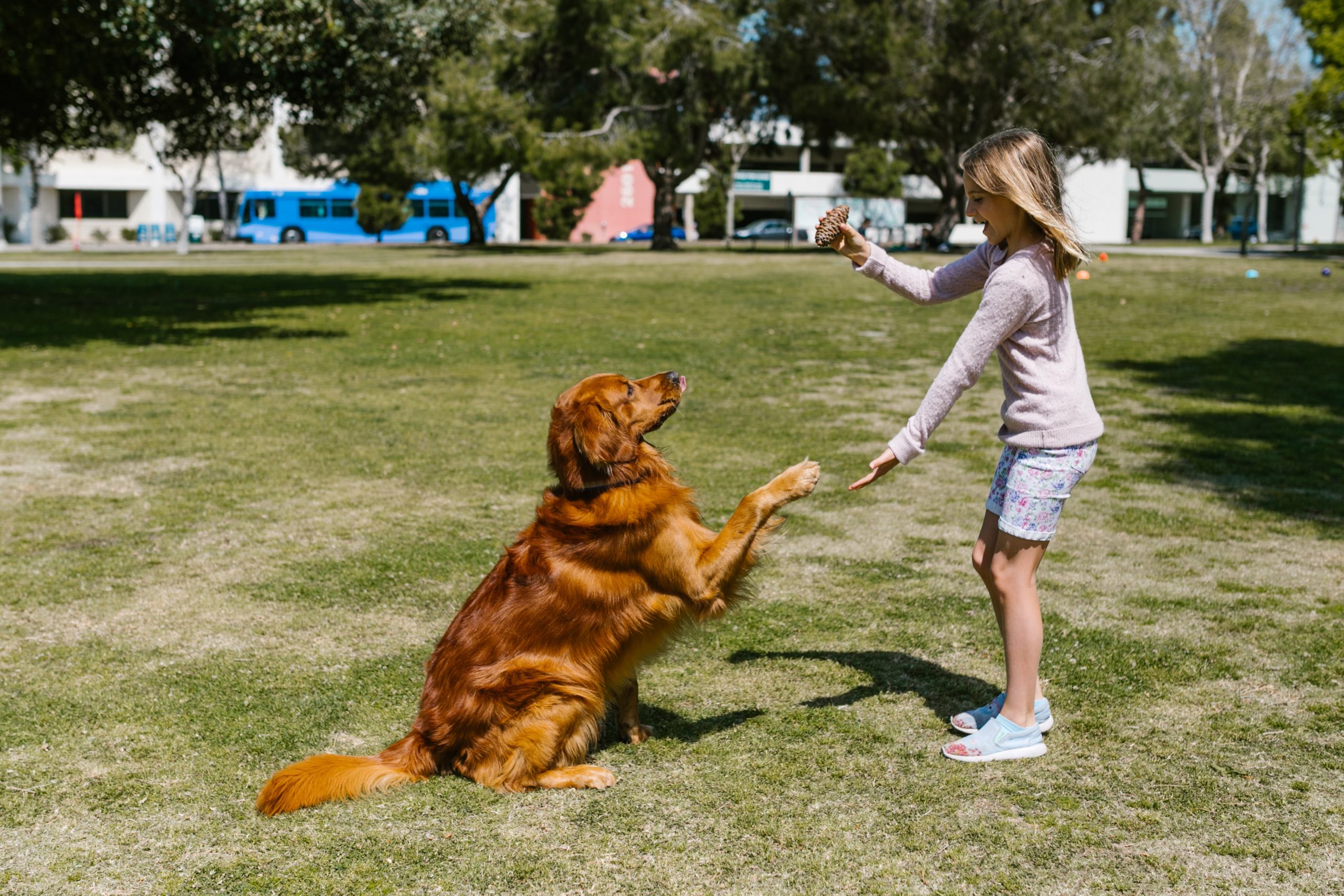Choosing the right breed of dog for a child with special needs is a decision that can significantly enhance the child’s life. The ideal dog breed for such children should exhibit qualities such as patience, gentleness, and an intuitive understanding of the child’s emotional and physical needs. Here are 10 dog breeds that are especially suitable for children with special needs, known for their calm demeanor, trainability, and sympathetic nature.
1. Labrador Retriever
Labrador Retrievers are renowned for their gentle temperament and patience, making them excellent companions for children with special needs. Their trainability and eagerness to please allow them to be effective in therapeutic roles. Labs are also known for their ability to form strong bonds and provide emotional support.
2. Golden Retriever
Golden Retrievers are similar to Labradors in their suitability for children with special needs. They are known for their gentle, patient and nurturing nature. Goldens are also highly trainable, making them suitable for providing therapeutic assistance and comfort and companionship.
3. Cavalier King Charles Spaniel
Cavalier King Charles Spaniels are affectionate and gentle, making them ideal for children who need a calm companion. They are small enough not to overwhelm but still sturdy enough to engage in play. Their empathetic nature allows them to connect with children on a deeper level.
4. Saint Bernard
Saint Bernards are known for their calm demeanor and gentle appearance. Their large size paired with a kind nature often makes them excellent therapy dogs for children with special needs. They are patient and can provide a comforting and protective presence.
5. Boxer
Boxers are known for their loyalty, protective instincts, and playful and gentle nature. They can be good companions for children with special needs, providing entertainment and a sense of security. Boxers are also patient and can form solid and empathetic bonds with their family members.
6. Beagle
Beagles are friendly, gentle and have a relaxed appearance, making them suitable for children with a variety of special needs. They are small enough to be handled and have a calm nature. Beagles are also known for their cheerful nature, which can uplift children.
7. Poodle
Poodles come in a variety of sizes and are highly intelligent and gentle, making them excellent for children with special needs. They are known for their hypoallergenic coat, which is beneficial for children with allergies. Poodles can be easily trained for a variety of therapeutic and assistance roles.
8. Newfoundland
Newfoundlands are gentle giants, known for their patient and protective nature. Their size can provide a sense of security, and they are often very nurturing and attentive to children. Newfoundlands are great for therapeutic purposes, especially for children who benefit from physical assistance.
9. Bernese Mountain Dog
Bernese Mountain Dogs are large, gentle and have a nurturing nature. They are patient and can be trained to perform specific tasks to help children with special needs. Their affectionate nature makes them wonderful companions, providing comfort and support.
10. coli
Collies are intelligent, gentle and known to respond instinctively to their owner’s needs, making them suitable for children with special needs. They are loyal and can be trained to assist in a variety of ways. Collies are also known for their gentle behavior, which can be comforting to children.
conclusion
Choosing a dog for a child with special needs involves considering the unique compatibility between the child and the dog. The breeds listed above are known for their unique characteristics that match well with the needs of children who need extra care and support. These breeds offer a combination of gentleness, loyalty, and the ability to be trained for therapeutic roles, making them ideal choices for improving the lives of children with special needs.

